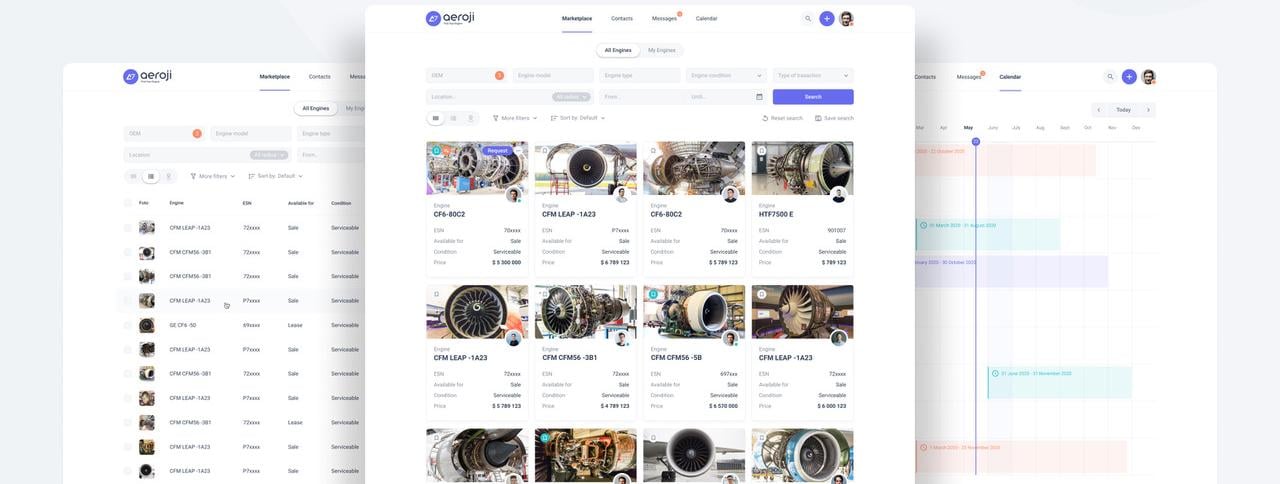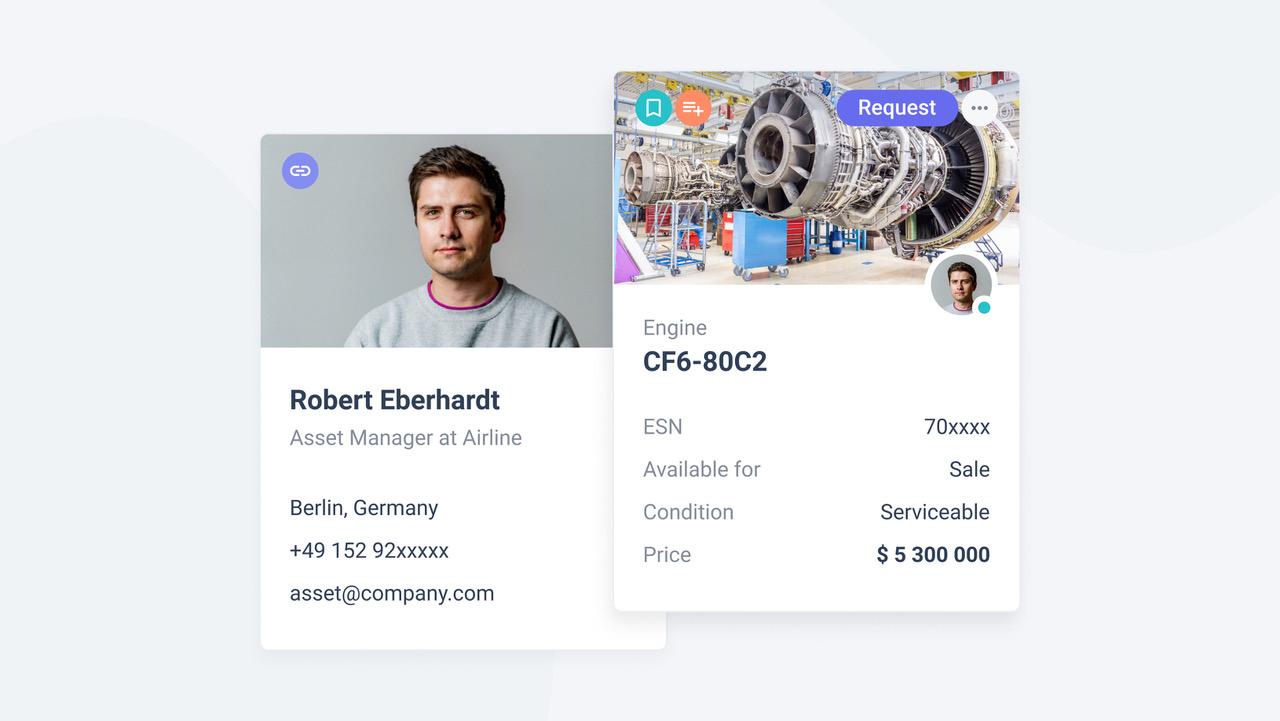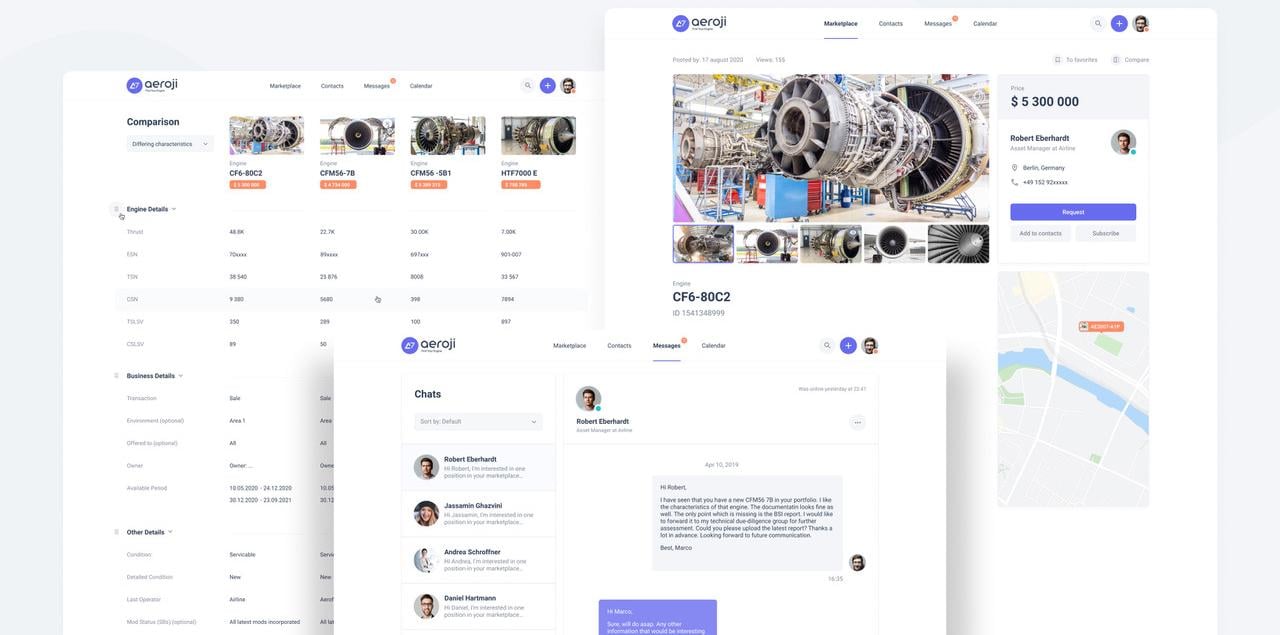German Startup Develops Streamlined Platform for Aero-Engine Leasing, Sales

A new startup is working to develop a “social marketplace” platform for aircraft engines aimed at increasing transparency while reducing inefficiencies and costs. In addition to simplifying engine lease and sale processes, the cloud-based Aeroji platform will enable airlines, lessors and MROs to engage with the aero-engines community while tracking engine assets and trends that are of interest to them.
Developed by a team of experts from across the aviation and digital spectrum, the Berlin-based startup is seeking to reduce the time, effort and resources it takes to find available engines online. According to Dimitri Martel, co-founder and managing director of Aeroji, the current methods to search for engines online tend to be inconsistent and lacking in transparency and collaboration. Interested parties, he says, need to search across multiple listing sources and aggregate information themselves, resulting in inefficiencies.

The Aeroji platform combines the user experience and social networking aspects of modern apps most people are accustomed to with streamlined functionality for trading and leasing. Users are not only able to set up profiles for themselves, but for actual engines—so detailed information about an engine such as its cycles and time since new, regions in which it has operated, and previous owners and operators are readily available. When an asset is sold or leased out, the Aeroji platform moves it to the online portfolio of its new owner instead of deleting it, which Martel says differentiates the platform from other conventional marketplaces and listing service providers.
Users can keep track of assets they are interested in through saved searches, notifications and status updates. They can also favorite engines, follow other users to see what kind of new engines they acquire and compare engines on a dashboard for quick assessment. Additionally, users can chat with each other and upload documents related to things such as shop visits or inspection reports.
“What we want to do is create key performance indicators (KPIs) for the user and for the profile of engines that will help the users to decide or to cherry-pick [assets],” says Martel. “It’s important to introduce KPIs for the users so that they’re really a trusted network, so everybody can see, ‘This user is active, he’s replying and his products are good.’”

Martel notes that this functionality to support cherry-picking of available engines may help airlines, lessors or MROs that are struggling due to the COVID-19 downturn. “We expect that a lot of surplus material will be out there. A lot of green-time engines will be out there and they will need to be stored somewhere, and this is where the Aeroji platform can help,” he says. “The recovery is different in all regions, so we think that with our platform we can support the better distribution of the available spares out there worldwide so that the airlines and lessors can concentrate on the markets where they see the recovery as being stronger and help the distribution of spares.”
Aeroji plans to start a beta test of the platform sometime in November, during which it will work with its first users to develop and deploy new functionality based on their feedback. Martel says Aeroji has already seen demand for integrating other products, such as APUs, landing gear or even full aircraft, as well as bringing on stakeholders such as logistics or engine stand providers. Future functionality could also include collaboration with other platforms that provide back-to-birth documentation storage, with the aim of integrating this functionality into Aeroji.
Martel says Aeroji expects the beta test to last approximately 2-3 months and it will launch a production version of the platform after this is complete. The platform will be available on a monthly subscription-based price plan, but it is free for beta testers, who will get an additional three months free post-launch.





